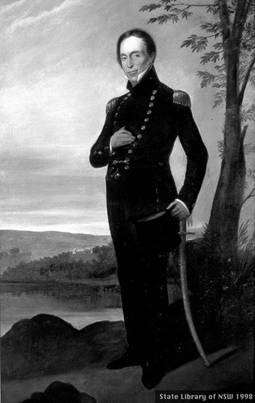- Author
- Driftwood
- Subjects
- History - pre-Federation
- Tags
-
- RAN Ships
- None noted.
- Publication
- March 2011 edition of the Naval Historical Review (all rights reserved)
Colonial powers applied controls over trade with the objective of restricting the carriage of exports to their own ships.
Colonial ships for Colonial Trade
From the early 18th century English navigation laws dictated that all trade to and from British colonies had to be carried in English owned and manned ships so that no foreigner could enter a colonial harbour. Foreign goods designed for a colony had first to be shipped to England and then transhipped, and colonial goods designed for a foreign port had to be similarly transhipped through an English port. While there were exceptions to the enforcement of these regulations, ships engaged in colonial trade had to deposit substantial bonds which could be forfeited if it was discovered they had illegally taken their cargoes directly to a foreign port. A ‘Naval Officer’ was appointed in most British colonies to enforce the navigation laws. Vice-Admiralty courts were also set up in major colonial outposts to try cases arising out of breaches of the laws of trade.
In the beginning the infant colony of New South Wales was not overly concerned with such rules as it was intended that all shipping should be from the mother country, although the Governor had authority over a Vice-Admiralty court. However it was not long before trade arose between the Colony and the then Dutch possessions at the Cape and Java, Portuguese Timor, British India, the United States of America and the then independent Pacific islands. While trade was mostly conducted in British or colonial vessels, a growing proportion was from American whalers who brought all types of goods and provisions as speculative cargoes on their outward voyages. The monopoly enjoyed by the British East India Company on trade in the Indian and Pacific regions was also of concern.
Import Duties
Shortly after taking up office Governor King set about changing the administration and established a system for the payment of duties on imported goods. In October 1800 he appointed his friend, the surgeon William Balmain, to the part-time position of Naval Officer, responsible for the collection of duties, especially those on spirits and tobacco. In an apparent conflict of interest the position later fell to the successful merchant and shipowner Robert Campbell. A similar position was also established in Van Diemen’s Land, however this was of little consequence after 1807 when most foreign trade from this colony was being diverted through New South Wales.
Changes to the English Navigation Laws enacted in 1813 were strictly enforced and the monopoly of the East India Company over trade in Australian waters ended. This led the Colonial Office to place greater importance on the position of Naval Officer and Collector of Duties and to directly appoint its own nominee to the enhanced position, which was expected to greatly improve revenue for the benefit of the colony. This new position was offered to Captain John Piper, recently returned to England after many years service with the New South Wales Corps. The position had also been sought by the promising young naval officer John Oxley, also recently returned to England after a number of years in the colony; it was fortuitous that he was turned down, given his later outstanding contribution as Surveyor-General of New South Wales.
Captain John Piper

image courtesy of State Library of New South Wales
John Piper was the son of an impecunious Scottish doctor and it was hoped that the boy would follow his father’s profession. Seeking adventure, young John prevailed upon an uncle to procure him a commission in the newly formed but unfashionable New South Wales Corps. He was to sail with the first detachment under the command of Major Francis Grose, arriving at Port Jackson in February 1792. The charming and handsome young ensign was an instant success with his fellow officers and much admired by the ladies, but having little money he volunteered for duty on the remote Norfolk Island, where he remained until promoted to lieutenant. After some leave in England he returned to Sydney in 1799, where he was to fall into disrepute acting as a second in an infamous duel between Captain John McArthur and his commanding officer Colonel William Paterson. Colonel Paterson was badly wounded; McArthur was sent to England for court-martial and Piper was banished back to Norfolk Island.




